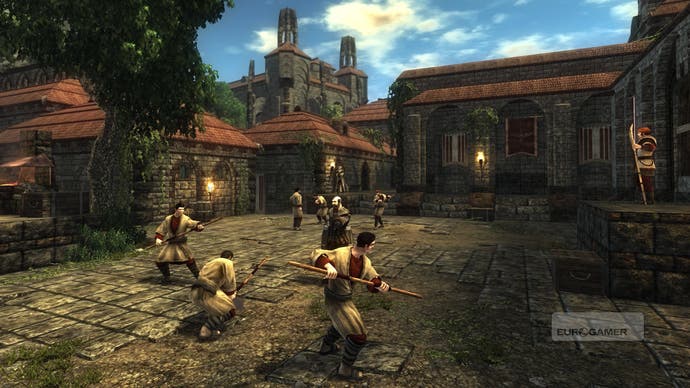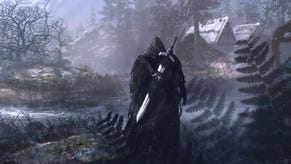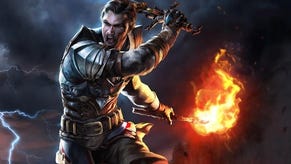Risen
Grinders keepers.
Not many games get a second chance to make a first impression, but enough readers felt Risen's shonky Xbox 360 port shouldn't count against the apparently superior PC version that we thought we should investigate that one as well. I was duly dispatched to the volcanic island of Faranga for a second go-around and, yes, it's true that the PC version is a marked improvement over its console cousin. It's immediately clear that Piranha Bytes is much more comfortable working on its native platform, and this familiarity certainly smooths some of the rough edges.
Most obviously, there's a definite benefit to the visuals. Even with settings at maximum it's not going to be the prettiest game around, but simply by eliminating the horribly distracting pop-up and enormous diagonal lines tearing through the distant scenery, the gameworld is easier to immerse yourself in. Draw distance is also improved, and it no longer feels like you're wandering through a half-finished virtual reality countryside.
Also benefiting from the comfort zone of the PC is the game's accessibility. Menus are still rather bland and ugly, but something as simple as the ability to drag and drop items from inventory spaces to equipment slots streamlines what had become a cumbersome obstacle on the 360. From this side of the fence it's easier to see how the 360 setup was crudely cut-and-pasted across, trying to match keyboard functions to d-pad directions, but there's no mistaking that Piranha Bytes was clearly out of its depth in the world of joypad-only game design.

Combat is also less of a fiddle, and seems considerably easier. Whether that's because the mouse and keyboard are more in tune with the game's design, or because I'd already grown accustomed to the peculiar rhythms of its block and strafe fighting style, I couldn't say. The slippery lock-on still proves problematic when tackling more than one foe at a time, however, and while it's possible to become adept at combat through practice, it's never as engaging as it needs to be to sustain the length of a full RPG.
The good points of the game are understandably closer to the surface here, which makes it easier to appreciate the solid script and voice-over work, as well as the numerous, varied and sometimes quite innovative quests. The skill tree is also pleasantly broad, once the game deems you worthy enough to explore it fully, with a range of crafts that wouldn't look out of place in an MMORPG.
Incidental details build along the way, and by the time the story really kicks in you've built up enough of a relationship with various NPCs that it feels like there's something tangible at stake. It's just a shame the character models are so atrocious, blank automatons speaking with expressive voices, while their unnaturally twitchy animation heightens their cheap appearance. Still, Oblivion had some of the worst faces in gaming history and went on to captivate millions, so it's hardly fair to dwell on such surface hiccups.





